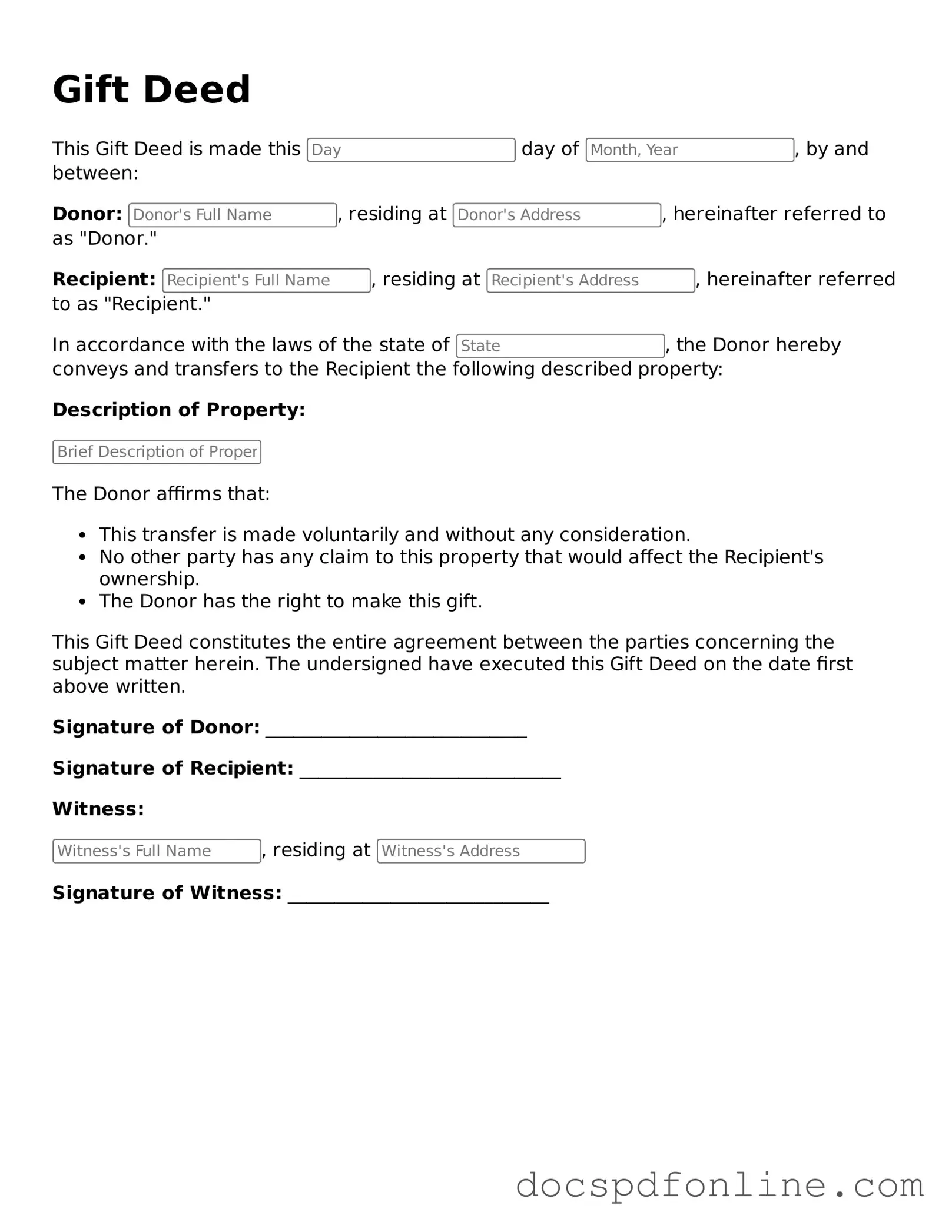Attorney-Approved Gift Deed Document
A Gift Deed is a legal document that allows one person to transfer ownership of property or assets to another person without any exchange of money. This form is essential for ensuring that the gift is legally recognized and that the intentions of the giver are clear. Understanding how to properly use a Gift Deed can simplify the process of giving and receiving gifts of significant value.
Launch Editor Now

Attorney-Approved Gift Deed Document
Launch Editor Now
Save time — finish this form fast
Finish Gift Deed online — edit, save, download made easy.
Launch Editor Now
or
↓ PDF File
